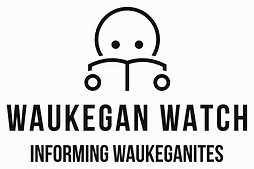Have you ever held back from posting a thought-provoking idea, a controversial opinion, or a deeply personal story online because you were worried about who might see it? In an age where our digital identities are meticulously curated and often permanently linked to our real-world selves, the freedom to express ourselves without fear of judgment or repercussion can feel like a distant dream. This is the very conflict at the heart of modern digital life: the tension between our desire for authentic expression and the increasing erosion of our privacy.
Enter the concept of Anonibs—a platform, or more accurately, a type of digital space, emerging as the internet’s provocative answer to this dilemma. It’s a realm where your identity takes a backseat, allowing your content to stand squarely in the spotlight. This article will pull back the curtain on Anonibs, exploring the profound creative freedom it offers writers and creators, while also providing a clear-eyed guide to navigating its unique landscape of risks and responsibilities. You’ll see how anonibs is not just a tool, but a symbol of a broader shift towards reclaiming control over our digital voices.
What Exactly is Anonibs? Defining the Anonymous Digital Space
At its core, the term Anonibs is a portmanteau of “Anonymous” and “Forums” (the “ibs” is a common shorthand for internet boards or forums). It represents a class of online platforms built on a foundational principle: the complete separation of the user’s identity from the content they create and share.
The Core Concept: Anonymity + Community
Unlike mainstream social media platforms like Facebook, Twitter, or LinkedIn, which are fundamentally identity-based, Anonibs is content-based. On traditional platforms, your profile—your name, photo, job history, and social connections—acts as your credibility and social currency. Engagement is often a performance for an audience that knows who you are.
Anonibs flips this model on its head. When you post on such a platform, you are, for all intents and purposes, a digital ghost. There is no profile to build, no follower count to chase, and no algorithm (in its purest form) promoting you based on your social clout. The community interacts solely with your words, your ideas, and your creations. This creates a unique environment where the idea itself is the star, unburdened by the reputation, gender, race, or social status of its author.
Evolution and Technical Underpinnings
The rise of platforms like Anonibs isn’t happening in a vacuum. It’s a direct response to growing public awareness of data harvesting, corporate surveillance, and the “chilling effect” that pervasive online tracking can have on free speech. As users become more disillusioned with having their every click and comment monetized and analyzed, the appeal of spaces that reject this model grows.
Technically, these platforms achieve this anonymity through various means. While specific implementations vary, they often employ robust encryption to protect data in transit, require minimal to no personal information for sign-up (often just a randomly generated username), and some may even operate on decentralized or peer-to-peer architectures. This makes it incredibly difficult for anyone—including the platform operators themselves—to link a piece of content back to a specific individual, offering a powerful layer of user data protection.
The Promise of Unfiltered Expression: Benefits for Writers and Readers
For writers, bloggers, and any individual with a story to tell, the benefits of a platform like Anonibs are transformative. It opens up a new dimension of creative and intellectual possibility.
Freedom from Judgment and Censorship
Imagine a writer wanting to explore a deeply personal struggle with mental health, a controversial political theory, or a critique of their industry without risking their career or personal relationships. On a standard social media platform, the potential for backlash, doxxing, or professional fallout is a powerful silencer. Anonibs removes that barrier. This freedom of expression allows for a level of authenticity and vulnerability that is often sanitized out of public discourse. Writers can test out rough ideas, share unfinished works, and engage in honest dialogue without the paralyzing fear of real-world consequences.
Content over Credibility: Merit-Based Engagement
In the virtual world of Anonibs, a Nobel laureate and a high school student have an equal voice. The platform forces engagement to be based on the merit of the content itself, not the perceived authority of the creator. This democratization of discourse means a powerful piece of writing can gain traction purely because it resonates with readers, not because it was shared by an influencer. For readers, this is equally valuable. They gain access to a raw, unfiltered stream of human thought and experience—perspectives they would likely never encounter in the carefully managed feeds of traditional social media.
Anonibs in Real-World Application
The utility of anonymous writing platforms extends beyond philosophical debates. Consider a university setting where students can anonymously provide candid feedback on courses without fear of grading bias. Or a corporate environment where employees can share genuine concerns about workplace culture without jeopardizing their positions. Anonibs provides the structure for this kind of brutally honest, and ultimately productive, communication.
Navigating the Ethical Tightrope: Risks and Responsibility on Anonibs
Of course, absolute anonymity is a double-edged sword. The very features that enable creative liberation can also foster an environment where accountability vanishes.
The Dual-Edged Sword of Anonymity
The most significant risk associated with platforms like Anonibs is the potential for abuse. The shield of anonymity can embolden a small minority to engage in toxic behavior, including trolling, harassment, and the spread of misinformation. Without a persistent identity to tarnish, the social contracts that govern behavior on other platforms can quickly break down. This creates a major challenge for consumers of this content: how do you separate fact from fiction when the source is completely unknown? Critical thinking becomes not just a skill but a necessity.
Balancing Privacy and Accountability
This brings us to the central challenge: how does a platform like Anonibs balance its core promise of privacy with the need to maintain a safe and lawful environment?
The answer often lies in a combination of robust content moderation and user responsibility. While platforms may not track who you are, they must still have clear community guidelines and mechanisms to remove illegal content, such as threats or CSAM. This is a complex and ongoing battle.
As a user, your responsibility is paramount. Engaging on Anonibs requires a heightened sense of digital citizenship. This means:
- Practicing critical thinking about the information you consume.
- Refraining from contributing to toxicity, even when provoked.
- Understanding the legal implications—while anonymity provides privacy, it does not grant immunity from the law for illegal activities.
- Using the platform as a tool for constructive expression, not destruction.
The Future of Digital Identity and Anonibs
The emergence and growing interest in Anonibs is part of a larger cultural shift. As a society, we are becoming increasingly aware of the value of our digital footprints and are actively seeking ways to protect them. The proliferation of VPNs, encrypted messaging apps like Signal, and privacy-focused browsers signals a demand for more control.
Anonibs represents a radical extension of this trend into the realm of public discourse and content creation. As concerns over data brokerage, AI-driven profiling, and online surveillance continue to mount, we can expect the appeal of identity-free publishing to grow. These platforms may well serve as crucial incubators for ideas that are too raw, too controversial, or too personal for the mainstream, ultimately enriching our collective dialogue by ensuring no voice is silenced before it can even speak.
Conclusion
Anonibs is more than just an anonymous forum; it is a powerful response to the increasingly identity-centric nature of the internet. It offers a sanctuary for digital privacy and untempered freedom of expression, providing writers and thinkers with a unique space where their ideas can be judged purely on their own merit. While it demands a cautious and responsible approach to navigate its potential pitfalls, its existence is vital.
Understanding what Anonibs is and how it functions is crucial for anyone who cares about the future of online communication, creative freedom, and the right to control one’s own digital identity. So, take a moment to critically evaluate the platforms you use today. Are they serving your need for authentic expression? If not, perhaps it’s time to explore what the world of anonymous online writing has to offer. Your most unfiltered thoughts might just be waiting for a place to be heard.
YOU MAY ALSO LIKE: The “Kennedy Funding Ripoff Report”: Unpacking the Online Firestorm

